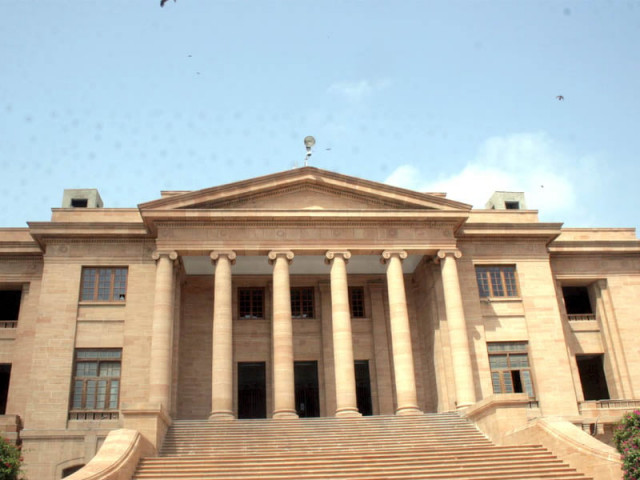Labourers win as SHC upholds IRA 2012
The verdict in this case was reserved in September last year.

There may be some respite to the excesses being meted out to the labourers as the Sindh High Court (SHC) declared the law that gives them the right to form unions as a valid piece of legislation.
While announcing the 26-page judgment, the SHC full bench disposed of 52 petitions filed by the collective bargaining agents questioning the legal status of the Industrial Relations Act (IRA), 2012. The verdict was reserved in September last year.
The petitioners had challenged the act on the grounds that it impinged upon provincial autonomy as the subjects it touched upon were not enumerated in the federal legislative list. The bench observed in its judgment that: "When a provincial legislature is not competent to preserve and regulate the rights of the workmen of trans-provincial establishments to the fullest, no prejudice is caused to provincial autonomy if the federal legislature gives a law of its own for such establishments."
It said that the IRA 2012 in its applications does not destroy or usurp provincial autonomy or the principle on which the federation was formed under the Constitution, since it facilitates and regulates the right to form unions.
The law is aimed at providing a common forum, both to the employees and the employers, where they might seek the enforcement of their rights, including the rights of workers to form unions, as the provincial boundaries no more come in the way of exercising that fundamental right, the judgement added.
"No law could be made to prevent the formation of unions at trans-provincial level; therefore, no embargo could be put even by implication on the exercise of that right," Justice Faisal Arab, the head of the full bench, wrote.
On the contrary, the absence of any law to facilitate the functioning of trade unions at trans-provincial level would amount to impliedly putting an embargo on the exercise of such a right, he added.
The court observed that all cases pending adjudication in the labour courts would stand transferred to the National Industrial Relations Commission (NIRC) of appropriate jurisdiction. Likewise, if there are cases pending adjudication in the NIRC that pertain to intra-provincial industrial and commercial establishments, they will be transferred to the labour courts of appropriate jurisdiction.
Employers' stance
Several employers, including the Karachi Electric Supply Corporation (now K-Electric), the Sui Southern Gas Company Limited and others had contended that following the passage of the 18th Amendment, the IRA 2012 was contrary to the legal provisions of the Constitution, as the subjects it covered, such as the formation of trade unions and the settlement of industrial disputes, were not enumerated in any of the entries of the federal legislative list. Legislation on those subjects fell exclusively within the legislative competence of the provincial legislatures, they had said.
The employers argued that the NIRC established under the IRA was a parallel legal forum alongside the labour courts established under the provincial law. They believed that this created multiple jurisdictions and led to confusion.
Employees
The employees supported the law, arguing that the parliament in given circumstances was well within rights to legislate on matters, such as the formation of trade unions and the settlement of industrial disputes. It related to establishments that operated at the trans-provincial level as the provincial assemblies were not empowered to make laws having operation beyond its territorial jurisdiction.
They had argued that the IRA guaranteed the employees of inter-provincial establishments to organise themselves on an inter-provincial level, form trade unions and seek the appointment of a collective bargaining agent and also to have an industrial dispute-resolution mechanism at the inter-provincial level.
"A provincial law cannot secure such rights for trans-provincial establishments as a provincial law is not enforceable beyond the territorial limits of the province," the unions had argued.
Published in The Express Tribune, August 6th, 2014.



















COMMENTS
Comments are moderated and generally will be posted if they are on-topic and not abusive.
For more information, please see our Comments FAQ